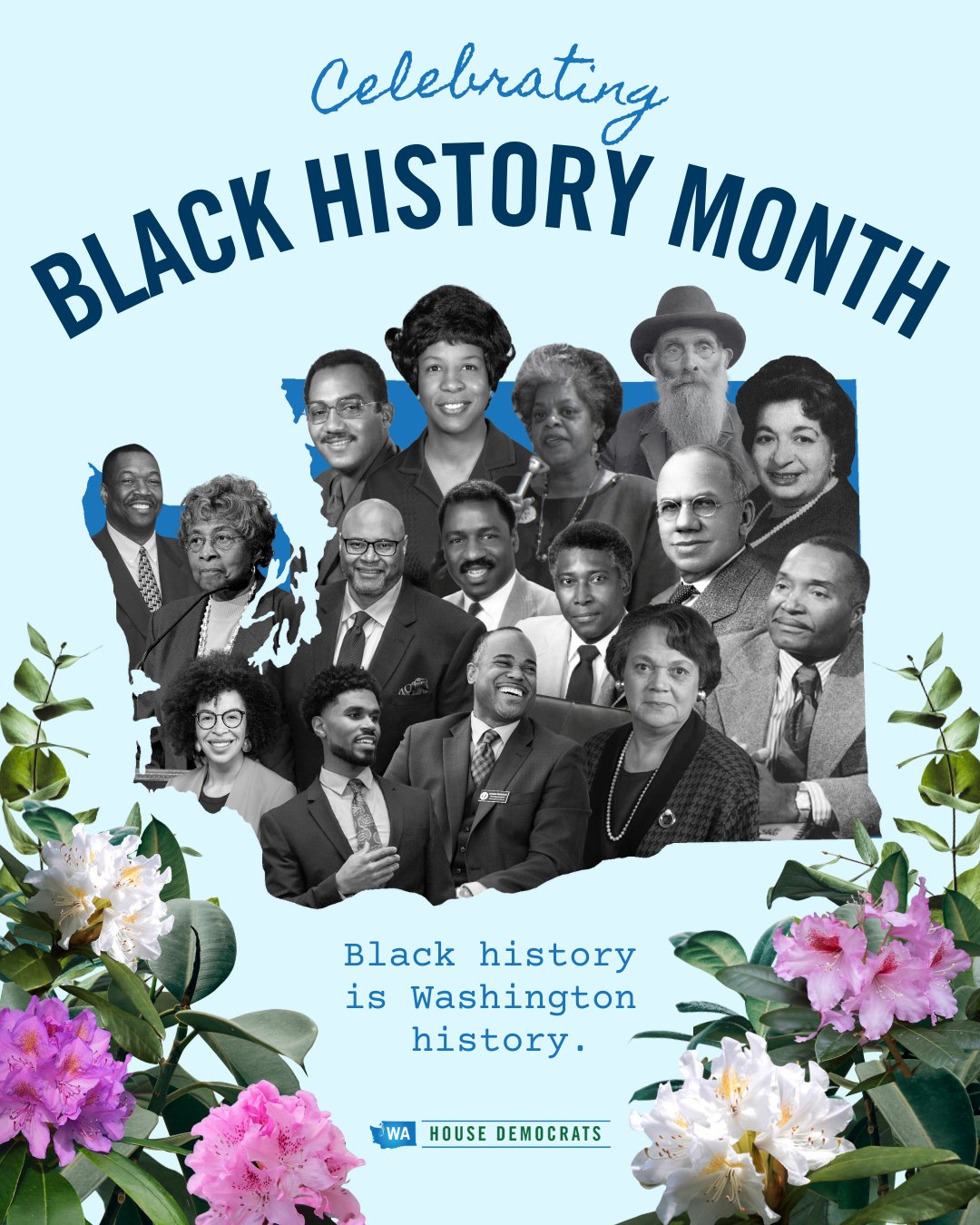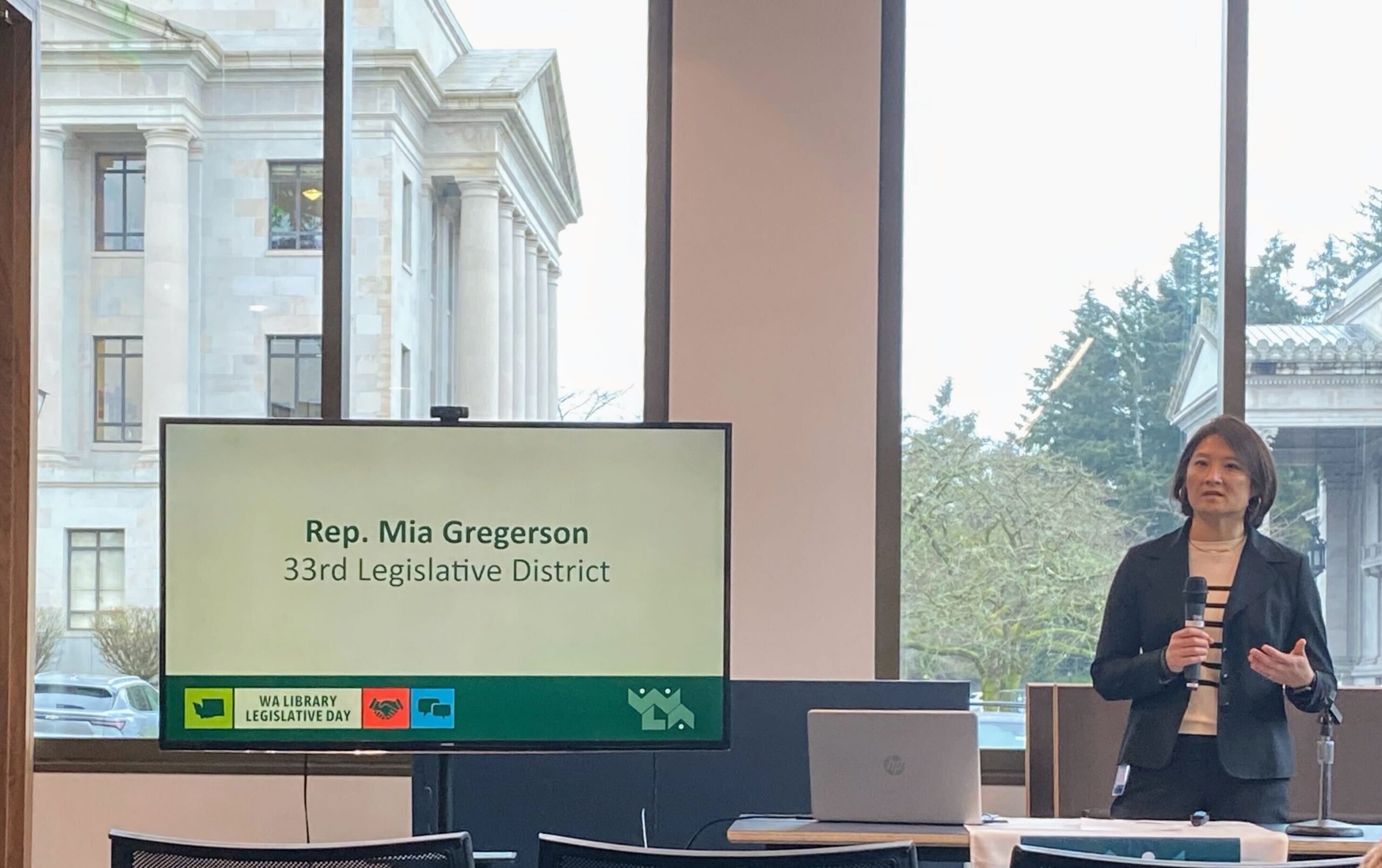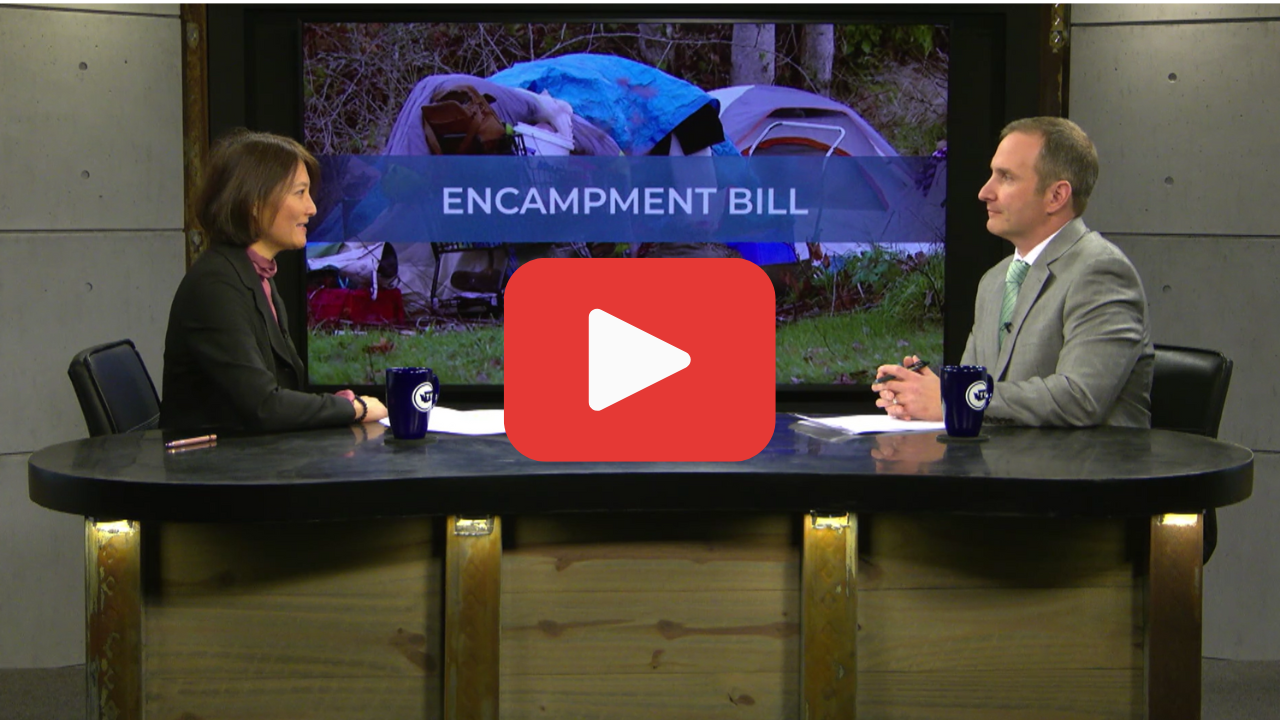Dear friends and neighbors,

I wanted to take a moment to acknowledge Black History Month and the work that is being done to ensure all Washington residents, regardless of their race or ethnicity, have access to the rights and privileges of living in this great state.
Black legislators have shaped Washington’s history with transformative legislation. Rep. William Owen Bush (Thurston County), the state’s first Black legislator, helped establish what became Washington State University in 1889. Rep. Peggy Joan Maxie (D-Seattle) championed the Landlord Tenant Act of 1973, a landmark housing law. Black lawmakers also led efforts to make Martin Luther King Jr. Day a state holiday, and their impact continues today. With the election of Rep. Natasha Hill (D-Spokane), Rep. Shaun Scott (D-Seattle), and the appointment of Rep. Brianna Thomas (D-West Seattle), Washington now has the largest Legislative Black Caucus on the West Coast.
I am inspired by their legacy and leadership. Learn more about how House Democrats are honoring Black History Month here.
Tune in: TVW Discussion on Safe Spaces, Strong Communities Act
I recently sat down with TVW to discuss House Bill 1380, the Safe Spaces, Strong Communities Act, and why this legislation is critical for Washington’s approach to homelessness. Our communities need solutions that balance public safety with real, long-term strategies to help individuals transition into stable housing.
HB 1380 provides clear guidance for local governments to regulate public spaces while ensuring that laws are fair, practical, and focused on effective solutions. We must move away from reactive, costly approaches and toward policies that invest in affordable housing and support services.
I encourage you to watch our conversation on TVW to learn more about the bill’s goals, its impact on local governments and residents, and how we can work together to create safer, healthier communities for all. Watch here or by clicking on the image above.
Supporting Libraries
Last month, I was honored to join advocates in celebrating and defending the essential role of libraries in our communities. As safe havens for learning, connection, and intellectual freedom, libraries must be protected—especially as other states push legislation restricting access to information.
Washington remains steadfast in ensuring libraries are spaces of safety and inclusion. That’s why I’ve championed legislation prohibiting firearms in public libraries and am leading efforts to bridge the digital divide. Earlier this session, I introduced House Bill 1503 to expand internet access, device availability, and digital literacy training, and House Bill 1517 to fund these critical programs through a small wireless device fee.

Libraries must remain places where everyone—regardless of background, identity, or belief—can find information, inspiration, and a sense of belonging. Let’s continue to invest in libraries, fight against censorship, and support the people who make these spaces thrive.
Serve As a Legislative Page!
I was honored to have Scott Calhoun, from Mount Rainier High School, serve as a legislative page in our office a couple weeks ago. The Washington State Legislature is one of the best Legislative Page programs in the country. Open to youth ages 14-18, pages contribute to the efficient operation of the legislature, receive daily civics instruction, draft their own bills, and participate in mock committee hearings.

Taking part in the page program is a great opportunity for young people to gain a unique perspective of the legislative process. If you have a teen who could benefit from this experience, I encourage you to consider sending them to Olympia for a week. For more information, please visit the House Page Program website.
Session Deadlines & State Budgets
The first major deadline of the legislative session is “policy cutoff” on Feb. 21. By this date, all bills changing state policy must pass out of committee to stay in play—except those involving state spending or revenue. Legislative cutoff deadlines help keep the process on track, especially in a year of rising needs, high inflation, and slowing revenue growth.
Simply put, our state faces around a $15 billion shortfall. Without new revenue, one look at former-Governor Inslee’s proposed budget demonstrated catastrophic cuts to programs and services all Washingtonians rely on. Cuts would include $3.5 billion in health care funding, $1.3 billion in human services, more than $1 billion from higher education, and significant cuts to long-term care, behavioral health, and corrections services.
What’s at stake isn’t just the programs on the chopping block—like health care, food assistance, meals for children, services for people with developmental disabilities, nursing home funding, substance use disorder treatment, and crime victim support. These cuts will have long-lasting effects on communities, similar to the impacts of cuts made during the Great Recession.
Washingtonians are counting on us to create a budget that protects the services they depend on, and that means we must have honest discussions about sustainable solutions.
Staying Engaged
Please continue to stay engaged by following me on Facebook, emailing me, or giving my office a call. Thank you for the opportunity to serve our community!
Best wishes,

Representative Mia Gregerson

